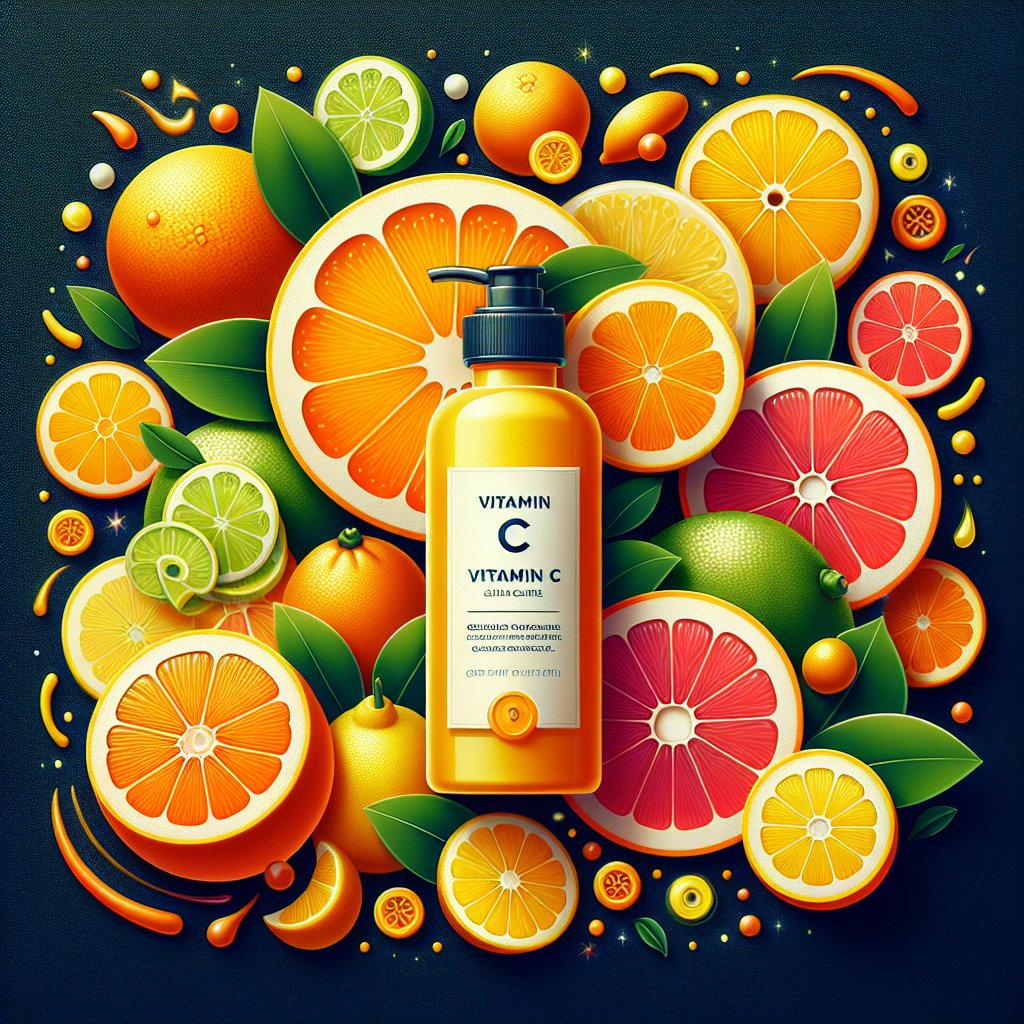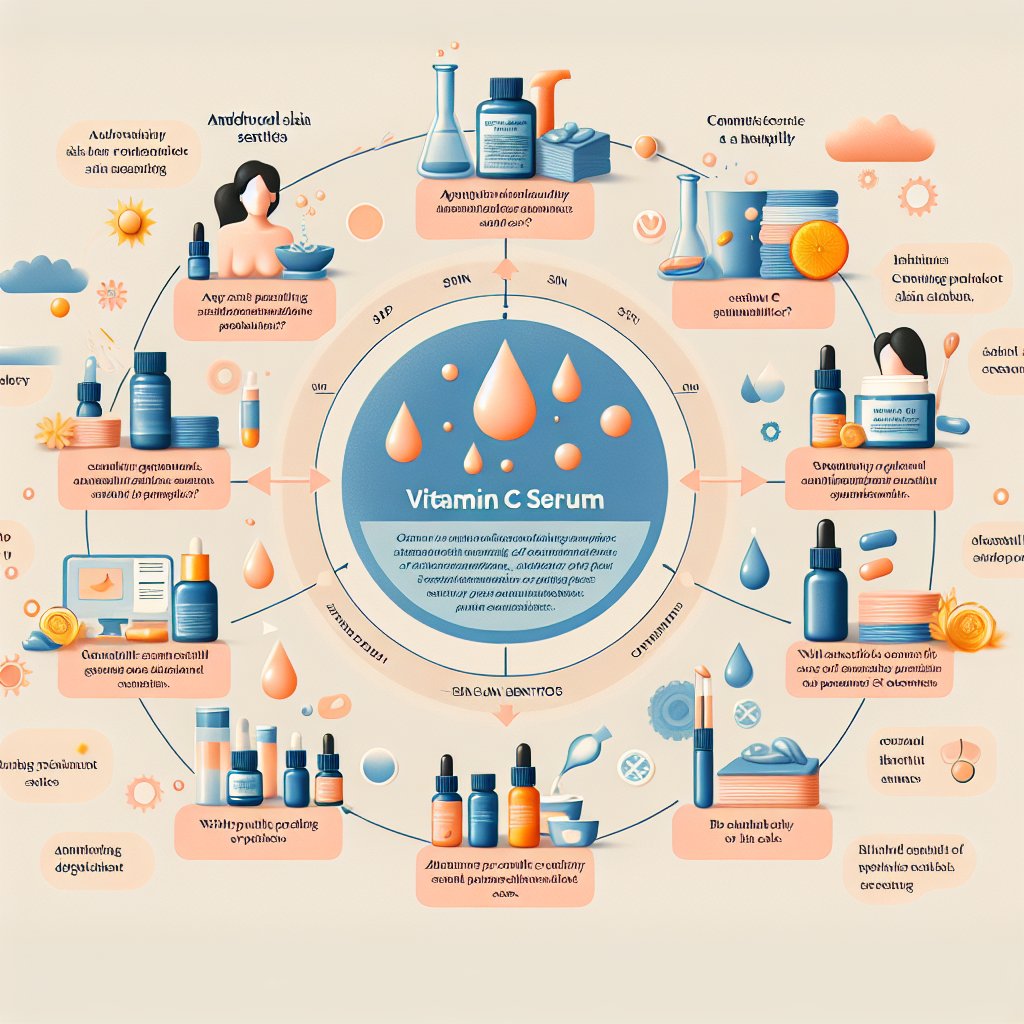Discover How Vitamin C Boosts Wound Healing: Your Ultimate Guide
A. The Importance of Wound Healing
Wound healing is a crucial process that our bodies undergo to repair damaged tissues and restore the skin’s integrity. Whether it’s a small cut or a more severe injury, the body’s ability to heal wounds effectively is essential for maintaining overall health and well-being. Efficient wound healing helps to prevent infection, reduce scarring, and restore normal function to the affected area. It’s truly remarkable how our bodies naturally work to repair themselves, and certain nutrients play a key role in supporting this process.
B. What is Vitamin C and Its Role in Wound Healing?
Vitamin C, also known as ascorbic acid, is a water-soluble vitamin that acts as an essential cofactor for various enzymatic reactions in the body. When it comes to wound healing, vitamin C plays a pivotal role in multiple stages of the process. It is crucial for collagen synthesis, which is the primary structural protein in connective tissues, including the skin. Collagen provides the scaffolding for new tissue growth and helps to strengthen the wound site as it heals.
Research has shown that adequate intake of vitamin C is associated with enhanced wound healing, reduced inflammation, and improved strength of scar tissue. Including sufficient vitamin C in your diet can significantly contribute to the body’s ability to heal wounds effectively and efficiently.

Understanding Wound Healing
Explanation of the Phases of Wound Healing
Wound healing is a complex process that occurs in several distinct phases. The primary phases of wound healing include hemostasis, inflammation, proliferation, and remodeling. During the hemostasis phase, the blood vessels constrict and platelets gather to stop the bleeding, forming a clot. In the inflammation phase, the wound becomes red, swollen, and warm as the body’s immune cells fight off infection and remove debris. Next, in the proliferation phase, new tissue is built to cover the wound, and finally, during the remodeling phase, the wound undergoes maturation and remodeling of the collagen.
Factors that Affect Wound Healing
Various factors can affect the wound healing process. These include age, stress, nutrition, and overall health. One significant factor is the intake of essential nutrients like vitamin C, which plays a crucial role in wound healing by supporting the formation of new connective tissue and skin.
(Word count: 146)
Discover How Vitamin C Boosts Wound Healing: Your Ultimate Guide
The Role of Vitamin C in Wound Healing
A. Overview of how Vitamin C supports wound repair
Vitamin C plays a pivotal role in wound healing as it is essential for the synthesis of collagen, a protein crucial for the repair and formation of connective tissue. According to a study published in the International Journal of Burns and Trauma, Vitamin C promotes the migration and proliferation of fibroblasts, the cells responsible for producing collagen, thus accelerating the wound healing process. Additionally, it acts as a co-factor for various enzymes involved in stabilizing collagen structure, effectively aiding in scar tissue formation and wound closure.
B. Importance of collagen synthesis in wound healing
Collagen synthesis is crucial for wound healing as it provides the structural framework for new tissue formation. Research indicates that adequate collagen synthesis contributes to improved wound tensile strength, subsequently reducing the risk of wound reopening and infection. Vitamin C’s role in stimulating collagen production underscores its significance in promoting effective wound repair and reducing healing time.
C. How Vitamin C acts as an antioxidant during the process
During the wound healing process, the body is subject to increased oxidative stress, which can impede healing progress. Vitamin C acts as a potent antioxidant, scavenging free radicals and reactive oxygen species that could otherwise inhibit the healing process. By neutralizing these harmful molecules, Vitamin C protects the newly formed collagen and cells, thereby supporting the overall wound healing process.
Incorporating Vitamin C into your diet or through supplements can significantly enhance wound healing, ensuring optimal collagen synthesis and protection against oxidative stress.

Natural Sources of Vitamin C
Including a variety of natural foods rich in Vitamin C in your ketogenic diet can help boost wound healing. Some excellent sources of this essential nutrient include:
- Broccoli
- Spinach
- Kale
- Bell peppers
- Brussels sprouts
- Strawberries
Supplements for Vitamin C Deficiencies
For individuals with deficiencies or those unable to consume enough Vitamin C through their diet, considering supplements can be beneficial. However, it’s essential to consult with a healthcare professional before adding any supplements to your routine. They can recommend the right dosage based on your specific needs and medical history.
Guidelines for Daily Dosage
For most adults, the recommended daily intake of vitamin C is 65 to 90 milligrams per day.
Specific Requirements for Wound Healing
Individuals with wounds or injuries may require higher doses of vitamin C. According to research from the National Institutes of Health, adults with non-healing wounds or injuries may benefit from doses of 500 to 1000 milligrams per day to support the healing process. The extra vitamin C helps in collagen formation, a crucial component of the skin’s repair process.

Potential Risks Associated with Excessive Vitamin C Intake
While Vitamin C is crucial for wound healing and overall health, excessive intake can lead to several potential risks. High doses of Vitamin C can cause digestive issues such as diarrhea, nausea, and stomach cramps. In some cases, individuals may also experience headaches and insomnia due to an overdose of Vitamin C.
Side Effects to Be Aware of When Considering Supplementation
When considering supplementation for wound healing, it’s essential to be aware of potential side effects. Although rare, some individuals may develop allergic reactions to Vitamin C supplements, leading to symptoms like rashes, hives, and difficulty breathing. Additionally, excessive intake of Vitamin C through supplements can elevate the risk of kidney stones, especially in individuals with a history of kidney issues.
Recap of the benefits of Vitamin C for wound healing
Vitamin C is an essential nutrient that plays a crucial role in wound healing. It is a powerful antioxidant that helps to combat oxidative stress and inflammation, which are key factors in the wound healing process. Vitamin C is also required for the synthesis of collagen, a protein that provides structure to the skin, and is vital for the formation of new blood vessels, which are essential for delivering oxygen and nutrients to the site of the wound. Studies have shown that maintaining adequate levels of Vitamin C can significantly enhance the body’s ability to repair and regenerate damaged tissue, ultimately speeding up the healing process.
Final thoughts on the importance of maintaining adequate Vitamin C levels for wound healing
Ensuring that you have sufficient Vitamin C levels is crucial for overall health and well-being, especially when it comes to wound healing. Including Vitamin C-rich foods such as citrus fruits, bell peppers, strawberries, and broccoli in your diet can be a simple yet effective way to boost your Vitamin C intake. Additionally, for individuals who may have challenges meeting their Vitamin C requirements through diet alone, supplementation can be beneficial. By prioritizing adequate Vitamin C intake, you can support your body’s natural healing processes and promote optimal wound recovery.
Conclusion
In conclusion, it is evident that Vitamin C plays a vital role in wound healing and overall tissue repair. Its antioxidant properties, as well as its involvement in collagen synthesis and angiogenesis, make it a crucial nutrient for supporting the body’s ability to heal. By understanding the benefits of Vitamin C and making conscious choices to include it in your diet or through supplementation, you can proactively contribute to the enhancement of wound healing and promote better overall health outcomes.


